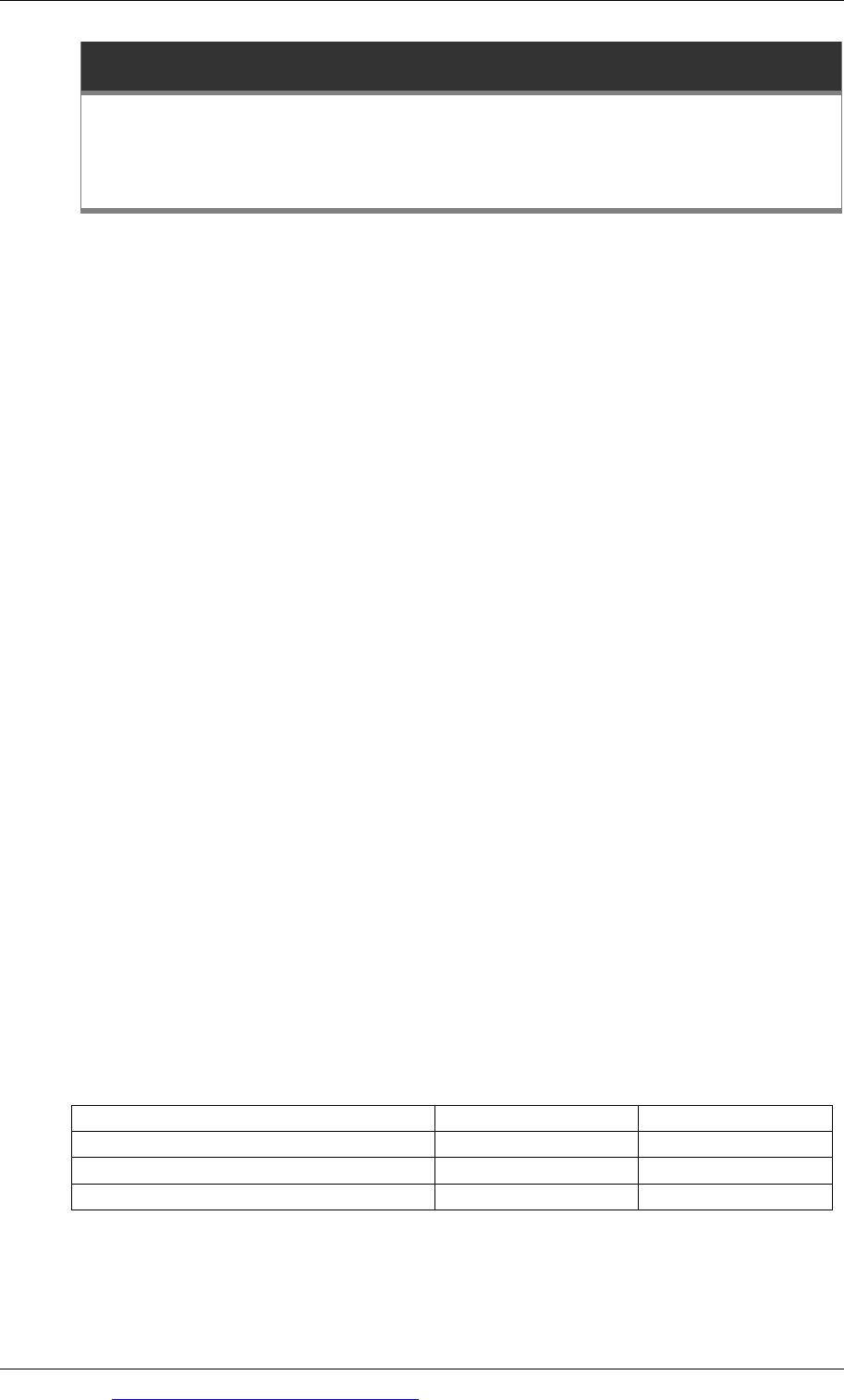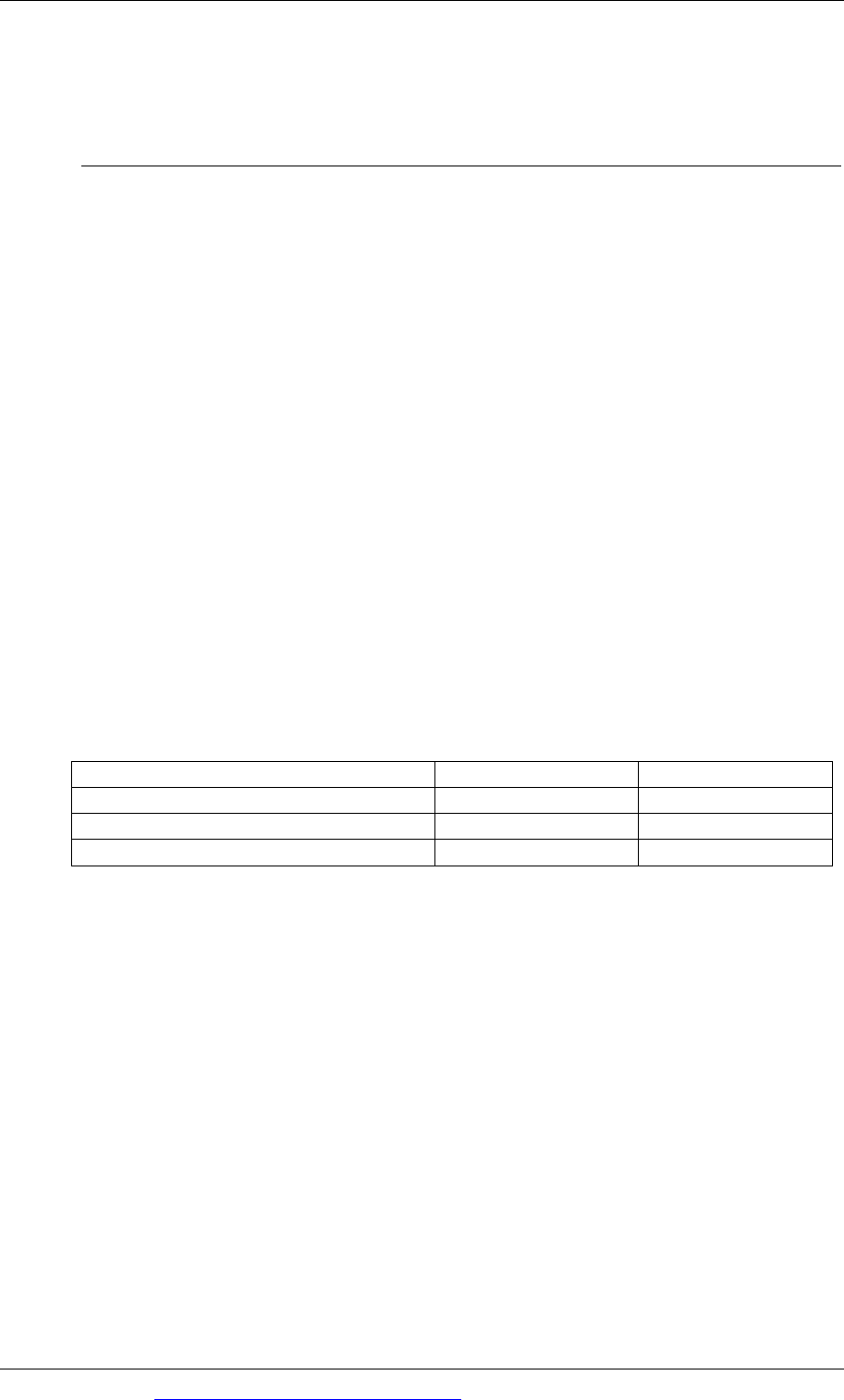ACCA F6 FA09 Study Text 2010
Подождите немного. Документ загружается.


© EWP Go to www.emilewoolfpublishing.com for Q/As, Notes & Study Guides 385
Paper F6 (UK)
Taxation FA2009
CHAPTER
22
Self assessment and PAYE
Contents
1 Notification of chargeability
2 Filing returns
3 Amendments, enquiries and appeals
4 Payment of tax
5 The PAYE system

Paper F6 (UK): Taxation FA2009
386 Go to www.emilewoolfpublishing.com for Q/As, Notes & Study Guides © EWP
Notification of chargeability
Notification by companies
Notification by individuals
Penalties for failure to notify chargeability
1 Notification of chargeability
1.1 Notification by companies
When a company first comes within the scope of corporation tax (i.e. when it first
has profits that are chargeable to corporation tax), it must notify HMRC of its
chargeability to tax within three months after the start of its first accounting period.
Companies that have been trading for a while usually receive a notice (reminder), a
few weeks before the end of their regular accounting end date, of their self
assessment obligation to file a corporation tax return. If a company with taxable
profits does not receive a return, it must notify HMRC within 12 months of the end
of its accounting period.
1.2 Notification by individuals
Where an individual first comes within the scope of income tax or capital gains tax,
or acquires a new source of income, he must notify HMRC of his chargeability to tax
by 5 October following the end of the tax year in which the new source of income or
gain arose. For example, for 2009/10, HMRC must be notified by 5 October 2010.
1.3 Penalties for failure to notify chargeability
Failure to notify chargeability can result in a penalty. This is determined according
to the new single penalty regime that applies to income tax, capital gains tax,
corporation tax and VAT.
The amount of penalty is based on the ‘potential lost revenue’. This is the amount of
tax due but unpaid by 31 January following the tax year (or 12 months following the
end of the accounting period for companies) as a result of the late notification. The
taxpayer’s behaviour also affects the amount of penalty payable:
Type of behaviour Maximum penalty Minimum penalty
Deliberate and concealed 100% 30%
Deliberate but not concealed 70% 20%
Any other case 30% Nil
The minimum penalties apply only where the taxpayer makes an unprompted
disclosure to HMRC. To avoid a penalty entirely the unprompted disclosure must
be made within 12 months of the date notification was due.

Chapter 22: Self assessment and PAYE
© EWP Go to www.emilewoolfpublishing.com for Q/As, Notes & Study Guides 387
Filing returns
Filing a corporation tax return
Penalties for late filing of a corporation tax return
Filing an income tax return
Penalties for late filing of an income tax return
Penalties for incorrect returns
2 Filing returns
2.1 Filing a corporation tax return
A company must complete a corporation tax return (Form CT600) and submit it to
HMRC within 12 months of the end of its period of account, or three months from
the date on which the notice to complete a return was issued, if later.
The return contains all the information required to calculate the company’s PCTCT
for the accounting period. It also enables the company to claim reliefs and
allowances (e.g. loss reliefs and capital allowances).
The company must also calculate its own corporation tax liability and submit a copy
of its financial accounts with its self assessment form.
2.2 Penalties for late filing of a corporation tax return
Penalties are levied if the corporation tax return is filed late, as follows:
Filed within Maximum penalty
3 months of filing date £100 fixed penalty.
Increased to £500 if the company becomes liable
to the fixed penalty for three consecutive years.
3 to 6 months of the filing
date
£200 fixed penalty.
Increased to £1,000 if the company becomes liable
to the fixed penalty for three consecutive years.
18 to 24 months after the
end of the accounting period
£200 fixed penalty
plus 10% of the tax outstanding 18 months after
the end of the accounting period
More than 24 months after
the end of the accounting
period
£200 fixed penalty
plus 20% of the tax outstanding 18 months after
the end of the accounting period

Paper F6 (UK): Taxation FA2009
388 Go to www.emilewoolfpublishing.com for Q/As, Notes & Study Guides © EWP
2.3 Filing an income tax return
The self assessment system for individuals covers:
income tax
Class 4 NICs, and
capital gains tax.
Individuals whose liability to income tax is not settled in full by deduction of tax at
source (for example, through the PAYE system) are required to submit a self
assessment return to HMRC.
Individuals who are likely to need to submit a tax return usually receive a blank
return automatically from HMRC around the end of the tax year (i.e. March/April).
An individual must complete the relevant sections of the tax return and submit it to
HMRC.
The full income tax return consists of a summary form, supplementary pages and a
tax calculation section.
The individual is required to complete the summary form and the appropriate
supplementary pages in full. As regards the completion of the tax calculation
section:
If the return is filed on-line, the tax calculation section is automatically
completed as part of the filing process.
If a paper return is filed, HMRC will do the tax calculation for the individual if
he so wishes, provided the return is filed on time.
If the taxpayer wishes to submit his return on-line, the normal due date for filing the
return is the later of:
31 January following the end of the tax year (i.e. for 2009/10, by 31 January
2011), or
3 months after the issue of the return.
If the taxpayer wishes to submit a traditional paper return, he must do so by the
later of:
31 October following the end of the tax year (i.e. for 2009/10, by 31 October
2010), or
3 months after the issue of the return.

Chapter 22: Self assessment and PAYE
© EWP Go to www.emilewoolfpublishing.com for Q/As, Notes & Study Guides 389
2.4 Penalties for late filing of an income tax return
Penalties are levied on individuals for late submission of a tax return, as follows:
Filed Maximum penalty
Within 6 months of filing date £100 fixed penalty
Within 6 to 12 months of the filing date £200 fixed penalty
More than 12 months after the filing date £200 fixed penalty plus up to 100%
of the tax liability for the year
If the fixed penalty of £100 is seen to be insignificant to the individual, HMRC may
apply to the tribunal for a penalty of up to £60 per day to apply instead.
The penalties (excluding the daily penalty) cannot exceed the amount of tax
outstanding at the date the return was due.
2.5 Penalties for incorrect returns
A single penalty regime for incorrect returns applies:
to incorrect income tax returns
to incorrect corporation tax returns and
where a misdeclaration has been made on a VAT return.
The penalty will be based on the amount of tax understated and the taxpayer’s
behaviour. The penalty will be:
Type of behaviour Maximum penalty Minimum penalty
Deliberate and concealed 100% 30%
Deliberate but not concealed 70% 20%
Careless 30% Nil
Any penalty will be substantially reduced where a taxpayer makes disclosure,
especially when this is unprompted by HMRC. For example, if a taxpayer makes an
unprompted disclosure of an incorrect return following a failure to take reasonable
care, the penalty could be reduced to nil.

Paper F6 (UK): Taxation FA2009
390 Go to www.emilewoolfpublishing.com for Q/As, Notes & Study Guides © EWP
Amendments, enquiries and appeals
Deadlines for amendments
Enquiries
HMRC’s information and inspection powers
Appeals
Determination assessments
Discovery assessments
Record keeping
3 Amendments, enquiries and appeals
3.1 Deadlines for amendments
HMRC’s right to repair
HMRC have the right to repair (i.e. correct) a taxpayer’s return within 9 months of
the date of receipt, if there are obvious errors or omissions (such as arithmetical
errors and missing pages).
The taxpayer’s right to amend
The taxpayer has the right to amend their return within 12 months of the due filing
date.
For example, for 2009/10, an individual has the right to amend until 31 January
2012, regardless of whether the return is paper-based or filed on-line.
Claims for recovery of overpaid tax
If a taxpayer believes he has overpaid tax, he may make a claim for repayment after
the amendment deadline but within four years of the end of the tax year (accounting
period for companies). However, a mistake is ineligible for relief if the return was
made in accordance with the generally prevailing practice at the time.
3.2 Enquiries
HMRC have the right to enquire into a return to check for completeness and
accuracy.
A return may be investigated:
because information is received by HMRC that does not tie up with the return,
or
as a result of HMRC’s random selection process, whereby it selects a small
percentage of returns to check.

Chapter 22: Self assessment and PAYE
© EWP Go to www.emilewoolfpublishing.com for Q/As, Notes & Study Guides 391
HMRC are not obliged to disclose the reason for the enquiry to the company.
However, they must give written notice before commencing an enquiry, within 12
months of the date of receipt of the return.
Normally, if HMRC does not issue an enquiry notice within the appropriate time
limit, the self assessment may be regarded as agreed and finalised.
On the completion of an enquiry, HMRC must issue a written notice stating:
that the enquiry has been completed, and
the outcome of the enquiry.
Within 30 days of the completion of the enquiry, the taxpayer must amend their self
assessment as required by HMRC.
If the taxpayer refuses to amend their self assessment, or does not amend the return
according to HMRC’s request, HMRC have the right to impose their assessment
within 30 days of the refusal or inadequate amendment.
The taxpayer can appeal against HMRC’s amendment, in writing, within 30 days of
the amendment.
3.3 HMRC’s information and inspection powers
HMRC can request information and documents from taxpayers by issuing a written
information notice. This power is for the purpose of checking the taxpayer’s tax
position and applies irrespective of whether HMRC has opened an enquiry.
HMRC can also request information from third parties provided the request is
either agreed by the taxpayer or approved by a First-tier Tribunal (see later).
The taxpayer must comply with the information notice within such time as is
reasonably requested by HMRC. If the taxpayer does not wish to comply, they must
appeal to the First-tier Tribunal against the information notice within 30 days.
A standard penalty of £300 can be imposed for failure to comply with an
information notice, unless the taxpayer can satisfy the tribunal that he has a
reasonable excuse for the failure.
HMRC also has powers to enter a taxpayer’s business premises and inspect their
business assets and records if the inspection is reasonably required for the purpose
of checking the taxpayer’s tax liability. Note, however, that the power does not
extend to entering and inspecting premises used solely as a dwelling.
3.4 Appeals
The taxpayer has the right to appeal against:
an amendment to a return
an information notice
the imposition of a penalty or surcharge

Paper F6 (UK): Taxation FA2009
392 Go to www.emilewoolfpublishing.com for Q/As, Notes & Study Guides © EWP
a discovery assessment (see below).
An appeal should be in writing, and must be made within 30 days of the relevant
event. It must also state the grounds for the appeal.
Appeals may initially be made to HMRC. An officer unconnected with the case will
undertake a review. This review must normally be carried out within 45 days. The
taxpayer then has 30 days in which to appeal to the Tribunal.
The tribunal system consists of a First-tier Tribunal and an Upper Tribunal. The
First-tier Tribunal deals with all but the most complex cases. The Upper Tribunal
deals with the more complex cases and appeals against decisions of the First-tier
Tribunal.
Cases are allocated to one of four tracks:
The paper track hears simple appeals, e.g. appeals against the imposition of a
fixed penalty. This is the default track and cases are normally decided without a
hearing.
The basic track involves a hearing but the exchange of documents beforehand is
kept to a minimum.
The standard track involves cases that are subject to more detailed case
management and formality.
The complex track is for long or complex cases, or those involving an important
principle or a large financial sum.
If the decision of the First-tier Tribunal is based on:
a matter of fact, the decision is binding and final
a point of law, the case can be referred to the Upper Tribunal, but only with the
permission of either the First-tier or Upper Tribunal.
A decision of the Upper Tribunal can be referred to the Court of Appeal.
3.5 Determination assessments
When a taxpayer does not file their return by the filing date, HMRC may estimate
the amount of tax due. A determination assessment may be made at any time within
four years of the end of the taxable period concerned. (The taxable period will be a
tax year for income tax/capital gains tax, and an accounting period for corporation
tax.)
There is no right of appeal against a determination. However the determination
notice will be set aside and replaced with the taxpayer’s own self assessment when
it is submitted.
3.6 Discovery assessments
Where a taxpayer did file their return on time but HMRC did not enquire into the
return within the permitted 12 months, HMRC can raise a discovery assessment
where they suspect that full disclosure has not been made.

Chapter 22: Self assessment and PAYE
© EWP Go to www.emilewoolfpublishing.com for Q/As, Notes & Study Guides 393
The time limits for making a discovery assessment depend on the circumstances of
the case:
.
Situation Time limit
Ordinary time limit 4 years from the end of the taxable period
Careless omission 6 years from the end of the taxable period
Deliberate omission 20 years from the end of the taxable period
3.7 Record keeping
A company must keep its records for at least six years from the end of the relevant
accounting period.
An individual must retain:
personal records for at least 1 year after the annual filing date (i.e. for a 2009/10
return, personal records must be kept until 31 January 2012), and
business records for at least 5 years after the annual filing date (i.e. for a 2009/10
return, business records must be kept until 31 January 2016).
The above dates for both individuals and companies are replaced by:
the date on which HMRC have completed any enquiry, or
the date on which HMRC no longer have the power to enquire into a return, if
later.
A penalty of up to £3,000 per accounting period/tax year can be levied for failure to
keep records.
The records to be retained by companies include records of:
All receipts and expenses
All sales and purchases
Supporting documents including accounts, books, deeds, contracts, vouchers
and receipts.
Individuals are simply required to keep adequate records to support their tax
return.
The obligation to preserve records may be satisfied by preserving the information
contained in the records, rather than the actual records themselves. It is therefore
permissible to preserve the information in electronic form.

Paper F6 (UK): Taxation FA2009
394 Go to www.emilewoolfpublishing.com for Q/As, Notes & Study Guides © EWP
Payment of tax
Payment dates for corporation tax
Payment dates for income tax, Class 4 NICs and capital gains tax
Surcharges
Interest on underpaid and overpaid tax
4 Payment of tax
4.1 Payment dates for corporation tax
A company that does not pay corporation tax at the full rate of 28% is liable to pay
its corporation tax liability 9 months and one day after the end of the chargeable
accounting period (CAP).
A large company must pay its corporation tax liability in four quarterly instalments.
The definition of a large company in this context is a company that pays tax at the
full rate of 28% (for example, because it has profits for a 12-month period in excess
of the statutory upper limit of £1,500,000).
However, a large company does not have to pay by instalments if it:
was not large in the preceding 12 months and does not have PCTCT in excess of
£10 million in the current accounting period, or
has a corporation tax liability of less than £10,000 and pays corporation tax at the
full rate because it has substantial FII and/or a large number of associated
companies.
The procedure for payments by large companies
If a company has a 12 month accounting period, the following procedure is adopted:
First instalment - 14 days after the end of the 6
th
month from the start of the
accounting period.
Second instalment - 14 days after the end of the 9
th
month.
Third instalment - 14 days after the end of the 12
th
month.
Fourth (i.e. final) instalment - 14 days after the end of the 15
th
month.
The instalments are based on the estimated corporation tax liability for the current
accounting period. The company should revise its estimates, if necessary,
throughout the year and pay any shortfall in respect of the previous quarterly
payments.
